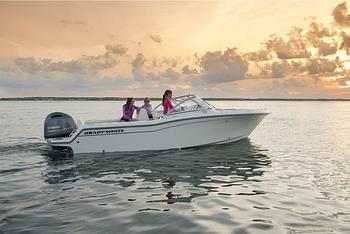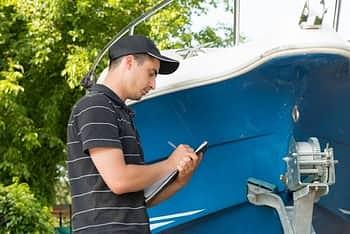It might be logical to assume that the process of buying a boat is not so vastly different to buying a car. Yet the maritime world has its own methods, and it is a good idea to understand the process before setting sail on your boat-buying journey.
Choose Your Used Boat
While this might be the obvious first step to buying a boat, it’s no small decision. Be prepared to dedicate time and patience in finding the right boat, Which fits your budget. Do you want a sail or motor boat? Do you want to potter down the River Thames or soar across the Pacific Ocean? Websites such as rightboat.com are excellent tools for helping you locate the perfect vessel through their detailed search parameters. See our guide to Choosing the Perfect Boat.

Arrange Viewings
Once you have a short-list of boats that tick all the boxes, use the handy contact forms to contact the brokers or private sellers directly to arrange a viewing. A broker acts as an agent for the seller, but the purchase will ultimately be between two individuals, much the same way as an estate agent acts in the purchase of a house.
Viewings are when negotiations start taking place so ask what will be included in the sale, such as navigational and safety equipment, sails or tenders. Once you have made the exciting decision to go ahead with the purchase of buying a boat, reach an agreement on the price, but make sure it is subject to sea trial and survey.

Check the Title Documents
Before proceeding any further with the steps to purchase the boat you need make sure that the seller owns the vessel 100%. Ask whether it has a marine mortgage, is owned outright by the seller and is free from debts, charges, encumbrances or liens. Ask to see any relevant documents, as well as evidence that the vessel is either VAT exempt or has had the VAT paid.
Sign the Contract and Pay the Deposit
If you are buying through a broker they will provide you with a contract, or Sale and Purchase Agreement. This is a legally binding document which must be signed by both parties. The pre-agreed inventory should be attached to the contract too. Once you’re happy with it and have put pen to paper, arrange to pay the deposit. This is usually 10%.
Get a Survey Completed
There is no legal requirement to get a survey done on a boat under 24 metres, but it’s imperative if you want to make sure you’re getting a sound boat with no nasty surprises. You’ll also need one in order to insure your boat. You can arrange the survey through a registered yacht surveyor who will create a detailed report of the boat’s condition. There are several types of survey you can opt for ranging from the simplest insurance survey to a full condition report. (see our guide to Boat Surveys: What You Need to Know).
Set off on Sea Trial
It is recommended to head out on the water and sea trial the boat before completing. Be aware that you are responsible for any slipway or skipper’s fees.

Complete on Your Purchase
The last step of buying a boat is the completition of the purchase. Arrange for payment to be sent to the broker or seller well in advance of the completion date. Once the money has cleared the broker will hand over the Bill of Sale, all relevant documentation and the keys to your new boat.
Set up Insurance
Whilst in many countries insurance is not compulsory it is highly advisable that you insure your boat with at least third party liability. After all, this is your new pride and joy!
Related Articles and Guides
7th Jun 2024
Best Boat Brands for Beginners: Power, Sail, Pontoon & Fish
25th May 2024
Boat Inspection Checklist: How to Inspect a Boat Before Buying
4th May 2024
Do You Need a License to Sail a Boat in the US?
28th Nov 2023






